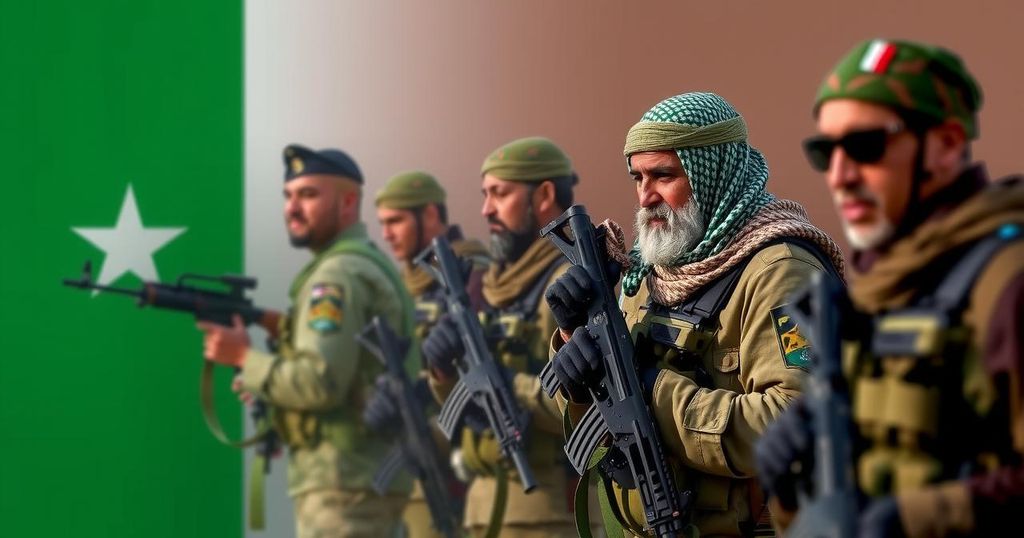A U.N. report states that Yemen’s Houthi rebels, with Iranian support, have transformed into a potent military force capable of widespread maritime attacks, significantly increasing their numbers and capabilities. This transformation includes the alarming recruitment of child soldiers and has serious implications for regional stability amid the ongoing conflict with the Yemeni government.
A recent report by U.N. experts has highlighted a significant transformation in Yemen’s Houthi rebels, who have evolved from a localized armed group into a formidable military entity. This change has been largely attributed to extensive support from Iran, alongside assistance from Iraqi armed factions and Lebanon’s Hezbollah. The report, which spans 537 pages, outlines how the Houthis have strategically positioned themselves within what Iran refers to as its “Axis of Resistance,” particularly aimed at enhancing their reputation amid the ongoing Israel-Hamas conflict in Gaza. Since the onset of the conflict, the Houthis have escalated their military activities, especially in maritime zones by attacking vessels in the Red Sea and the Gulf of Aden. These actions have disrupted global shipping routes and undermined economic stability in the region. Notably, data indicates that between November 15, 2023, and July 31, 2024, they executed at least 134 hostile operations against both commercial and military ships, asserting their capability to conduct such extensive attacks, which have been described as unprecedented since World War II. The U.N. experts noted that the Houthis have deployed a newly identified ballistic missile, the Hatem-2, in their maritime operations. Furthermore, they reported observing an increase in Houthi manpower, estimating their fighting force at approximately 350,000, a marked rise from 220,000 in 2022 and 30,000 in 2015. This escalation in numbers and capabilities has been facilitated by advanced military supplies and training from Iran’s Revolutionary Guard and other affiliated groups. Additionally, the Houthis have established coordination with al-Qaeda affiliates and engaged in significant recruitment efforts that include the conscription of minors and vulnerable populations, such as Ethiopian migrants. Reports indicate that these youths are subjected to manipulation and forced participation in the armed conflict, with particular attention drawn to the alarming recruitment of children as young as eleven. These developments underscore a devastating human rights crisis amid the ongoing civil war and highlight the Houthi rebels’ shift from local insurgents to players with the potential to influence international stability.
The conflict in Yemen, which has persisted since 2014, began as an internal struggle between the Houthi movement and the internationally recognized government. However, it has since escalated to draw in regional powers, with Iran’s support bolstering the Houthis considerably. The involvement of Iran and its allied groups has allowed the rebels to expand their operational capabilities significantly beyond their initial scope. The current geopolitical landscape, particularly the interconnection of various militant organizations in the region, further complicates the situation and poses broader threats to international peace and security.
The findings from the U.N. report illustrate a troubling escalation of hostilities among Yemen’s Houthi rebels, fueled by external support and sophisticated military equipment. Their transformation into a significant military force capable of affecting maritime security has raised alarms regarding the potential for increased regional instability. The widespread recruitment of children and vulnerable populations emphasizes the urgent need for the international community to address the humanitarian implications of this conflict and consider diplomatic solutions to mitigate the ongoing crisis.
Original Source: apnews.com






